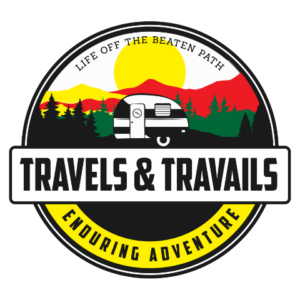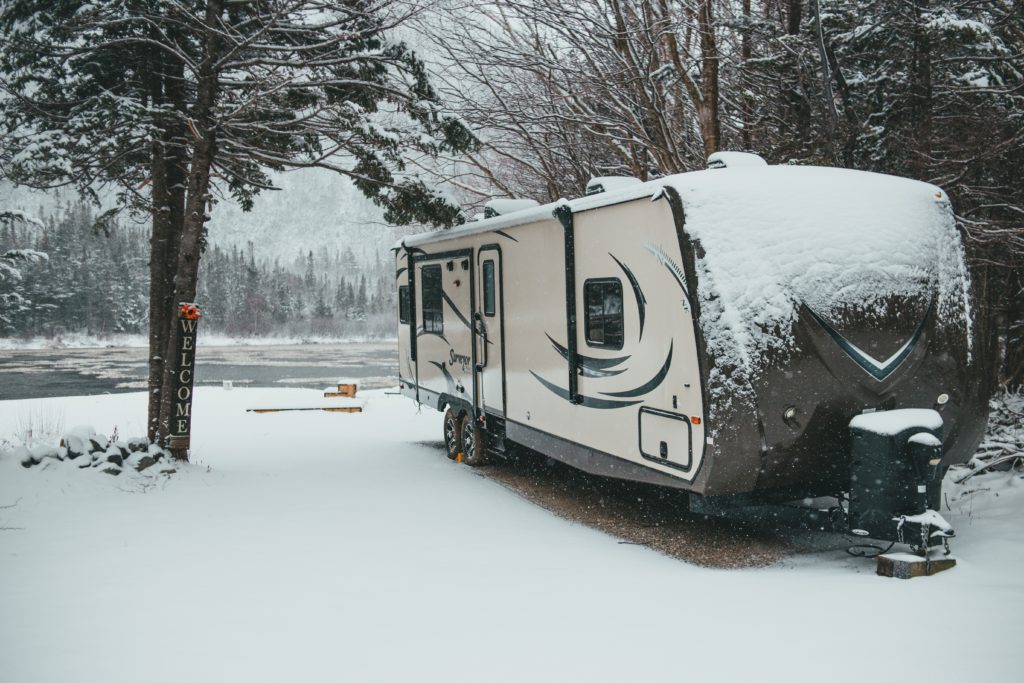
Winter camping is different than summer camping. It’s colder, road conditions worsen in some areas, and you have to work harder at staying warm in northern campgrounds. Still, you might wonder, “Are campgrounds even open in winter?”
Most campgrounds stay open during the winter in the southern portion of the US. In fact, in some desert locations, winter is the best time to camp. Snowbirds flock to Florida for camping in winter. You can even find camping in the winter in the northern states. For example, in Colorado, Washington, and Montana, most state campgrounds stay open year-round. Even Minnesota, a state that has record cold winters, has campgrounds that are open in the winter.
And, why do people camp in the winter anyway? Read on to find out.
Why People Camp in Winter
Winter is one of the best times to camp. Kids are back in school, campgrounds are empty, and the bugs are gone.
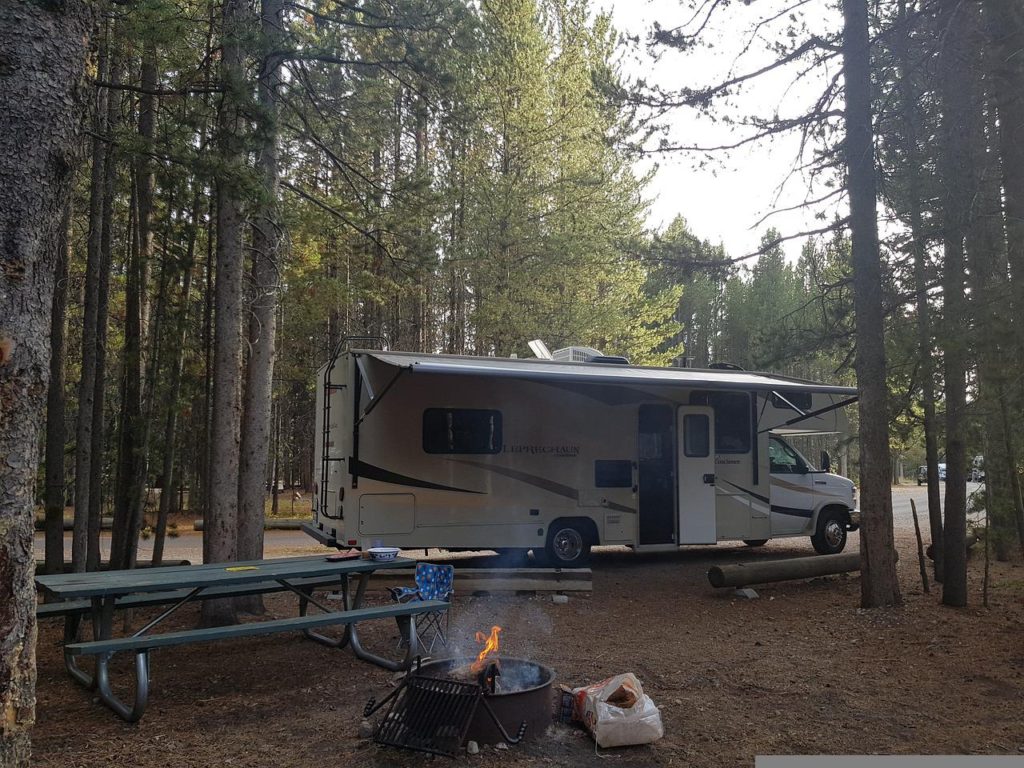
Empty Campgrounds
The past few years it’s been challenging to find a campsite at many campgrounds during the summer. Like I mentioned, kids are out of school and many people take advantage of this with a summer camping trip. In the winter, kids are back in school and people are less likely to go camping. This makes winter the ideal time, in fact, my favorite time to go camping.
Cooler Temperatures
Winter brings cooler temperatures. It’s so much easier get warm than it is to cool off. When it’s hot, you’re limited in how many clothes you can remove to get cooler. But when it’s cold, you can add layers to get warm. Personally, I prefer cooler temperatures to warmer temperatures. It’s so much easier to sleep when it’s cold than when it’s hot outside. We frequently camp off the beaten path, so we rarely have hookups. The heater in our trailer runs on 12 volts. In contrast, the air conditioner runs on 120 volts, so it’s much easier to heat up our trailer than it is to cool it down when we are off-grid. Last year, we came home a week early from a 6-week trip because Idaho had a record heat wave. You can’t beat the winter temperatures when camping.
Zero Bugs
There is an ongoing joke that the mosquito is the Minnesota state bird. And while that is not completely true, mosquitos can quickly ruin your camping experience. Other contenders in the nuisance category for bugs are the tick, the chigger, and the wasp. All these bugs are gone in the winter, at least in northern latitudes. Even in southern latitudes, bug pressure is reduced. If you’re sick to death of camping with bugs, camp in the winter.
Sleeping Animals
One of the challenges of camping in the summer is dealing with bears and other campground animals. Yosemite National Park is known for having the most destructive bear population in the US. The bears aren’t necessarily threatening, they are more of a nuisance. Having food always at arms-length can be annoying. Constantly having to make sure coolers are put away and that car does not have so much as a stick of gum or a tube of sunscreen is a headache. Mice, squirrels, and bats, animals that can be bothersome in a campground, also hibernate in the winter. Yosemite is open for camping during the winter when pesky animals are hibernating, giving campers a reprieve from the extreme vigilance that is required for dealing with food in the summer.
Challenges of Winter Camping
On the other hand, winter camping can be challenging. Snowy and icy roads, freezing holding tanks and keeping your rig warm are some of the challenges of winter camping.
Find out the best way to handle RV camping in the winter.
Road Hazards
In the summer, the main road hazards are construction or traffic. But in the winter, you may have to contend with icy or snowy roads. If you can avoid driving in ice and snow in your RV, by all means, do so. But sometimes an unexpected storm might roll in. When this happens, you can be ready.
Snow Chains
Have snow chains at the ready. If you find yourself in the midst of the white stuff, that’s not the time to be looking for snow chains. Our experience is that Napa Auto Parts has knowledgeable people who can help you select the proper chains. You may be able to find chains at a discount store, like Walmart, but you likely won’t have anyone there who knows anything about the type of chains you’ll need.
Snow chains on a travel trailer help with braking, not traction. It’s challenging to brake a trailer in the snow without them.
Drive Slower
If you drive slowly, you potentially have more control over your vehicle and can react more quickly to an adverse event. Don’t be jerky with the brakes, accelerator or steering wheel. Quick movements can spin your vehicle out of control. Anticipate potential issues by looking well ahead. For example, if you are coming to a stop light, anticipate if that stop light may turn yellow or red before your get there and think about what you will do. It’s never good to slam on your brakes when driving in snow. If you feel yourself starting to skid, don’t slam on the brakes.
Have a Full Fuel Tanks
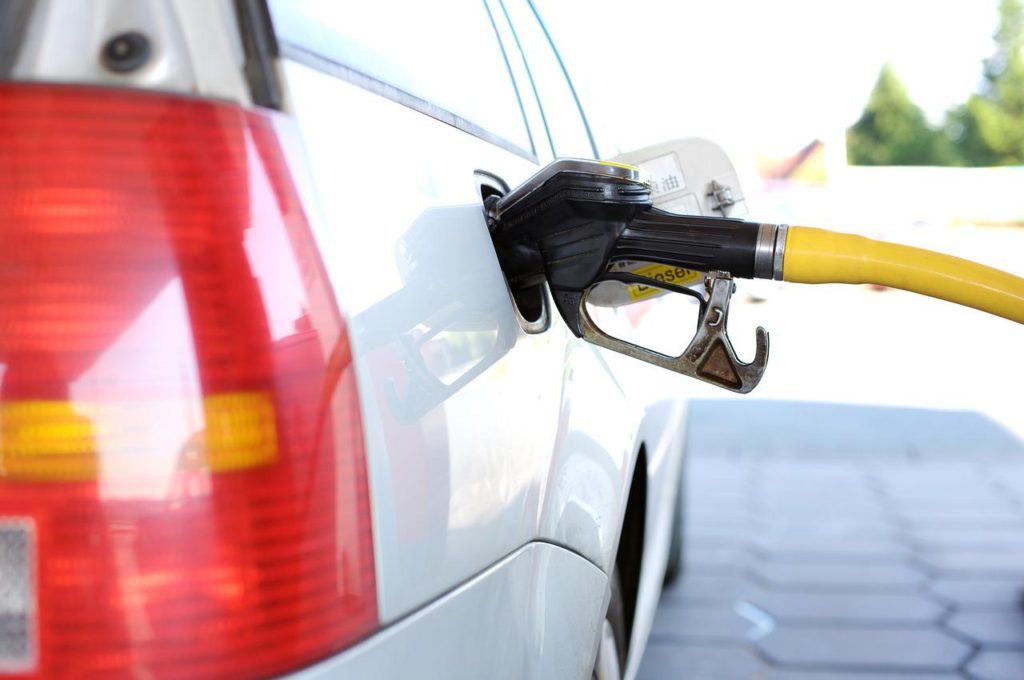
When camping in the winter in cold temperatures, always have a full tank of gas. Make it a habit to top off your gas tank before you arrive at your camping destination. That way, if you run into foul weather, you won’t have to worry about running out of gas. If your RV uses propane, be sure to have the propane tanks filled before you begin your journey. And, if you have an RV generator that requires separate fuel storage, have that filled as well.
Plan Ahead
Be sure to check the weather to decide if the trip is a go. If severe weather is predicted, don’t hesitate to cancel the trip. Sure, you’ll likely lose some money on a camping reservation, but it’s not worth potentially risking your life or vehicle. Camping in winter requires a few extra precautions that will make your trip safer.
Bring Extra Clothes, Food and Water
In 1993, a couple with a small child were caught in a snowstorm for a week while traveling from Northern California to Idaho. While the family carried sleeping bags and extra clothing in their car, they had no food or water. In order to survive, they ate snow. This story was featured in the TV series, I Shouldn’t Be Alive.
We always carry extra food in our travel trailer and leave with the water in our holding tank at least half-full if not completely full. In the winter, it’s imperative that you have warm clothes and blankets to bundle up in for the worst case scenario. You probably won’t have a problem, but it’s better safe than sorry.
Have a Way to Contact Help
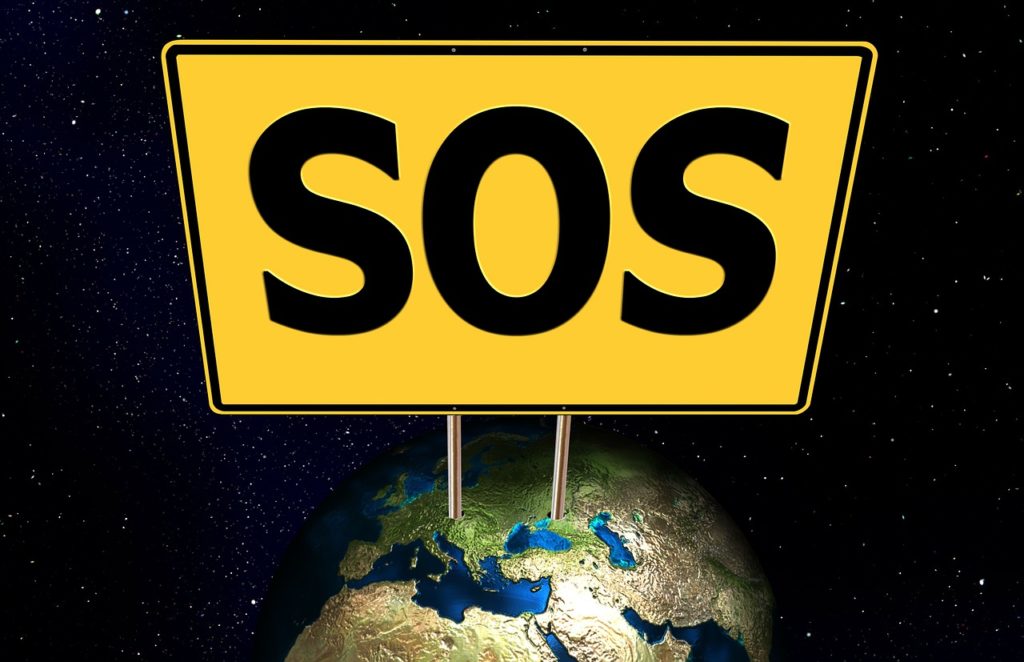
In winter, consider camp on the grid. If you know you will be off the grid, carry an emergency device. We have a Garmin inReach since we are frequently off the beaten path. This device can send an SOS if we are in trouble. We can also set it to send out a text to let our family know that we are okay. The Garmin inReach works when you have no cell phone signal.
Conclusion
Winter can be the best time to camp for many reasons. It’s important to remember to prepare in order to have a safe and fun trip.
